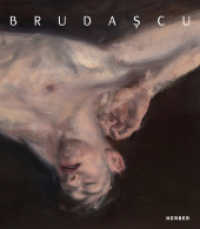- ホーム
- > 洋書
- > 英文書
- > History / American
Full Description
One of the lesser-known stories of the Civil War is the role played by escaped slaves in the Union blockade along the Atlantic coast. From the beginning of the war, many African American refugees sought avenues of escape to the North. Due to their sheer numbers, those who reached Union forces presented a problem for the military. Fortunately, the First Confiscation Act of 1861 permitted the seizure of property used in support of the South's war effort, including slaves. Eventually regarded as contraband of war, the runaways became known as contrabands. In Bluejackets and Contrabands, Barbara Brooks Tomblin examines the relationship between the Union Navy and the contrabands. The navy established colonies for the former slaves, and, in return, some contrabands served as crewmen on navy ships and gunboats and as river pilots, spies, and guides. Tomblin presents a rare picture of the contrabands and casts light on the vital contributions of African Americans to the Union Navy and the Union cause.
Contents
Introduction
Union Navy Policy toward Contrabands
Going to Freedom
Contraband Camps
Informants
Contributing to Victory
Contraband Pilots
Contraband Sailors
Joint Army-Navy Operations
The Final Months







